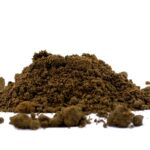A venture that had been set aside “indefinitely” by a Belmont-area dairy farm several years ago received a full reconsideration during the early days of the COVID-19 pandemic, and as a result Mistyglen Creamery now aims to sell its first on-farm processed milk and yogurt in late 2021. Why it matters: An increase in interest […] Read more
News — page 347

On-farm processing dream perseveres through adversity
Mistyglen revived plans to process milk during the pandemic, and after a tornado wrecked its barn

New meat scientist joins University of Guelph faculty
Latest hire continues rejuvenation of Guelph’s Animal Biosciences department
Professor Marcio Duarte is expected to soon join the University of Guelph’s Department of Animal Biosciences as assistant professor in meat science and muscle biology. Duarte is currently an assistant professor in animal science at the Universidade Federal de Viçosa in Brazil. Beef cattle are his main focus, although he also collaborates on swine research […] Read more

New face at soil network helm
Tori Waugh has been appointed executive director of the Ontario Soil Network. Waugh, principal consultant at Conservation Ag Consulting, has helped grow the Ontario Soil Network to its current role in the sector. She was selected after a competitive process. The Ontario Soil Network has created a new strategic plan and it will be Waugh’s […] Read more

Sherk re-elected Dairy Farmers chair
Lactanet appointed as quality assurance validator
Dairy Farmers of Ontario has signed on Lactanet as the independent validator of the proAction quality assurance program in the province. DFO had been using its own customer service people to validate the program, but there was concern that would be seen as not independent enough for validation of a quality assurance program. Indeed, in […] Read more

Goat code open for public comment
The Draft Goat Code of Practice is now open for public comment ahead of a Feb. 22 deadline. “Whether you have a small herd or a large herd, the impact of the revised Goat Code of Practice on your farm will be the same,” stated Ontario Goat President Dirk Boogerd. “It is important for goat […] Read more

OFA increases leadership program contribution
The Ontario Federation of Agriculture (OFA) contributed an extra $10,000 to the current class of the Advanced Agricultural Leadership Program (AALP). The money raised will offset costs of additional COVID-19 related travel requirements for more social distancing and re-planning of AALP Class 18’s international study tour. A foundational partner of the Advanced Agricultural Leadership program, […] Read more
Letters: European equipment imports happen for a reason
Dear editor, I have read the story in Farmtario quoting Bev Leavitt, head of CEEDA, Canada East Equipment Dealers Association, crying wolf about farmers buying agricultural machinery from Europe. Maybe it would be good to consider the reasons why this is happening. First of all, this is far from being a common practice. Between the […] Read more

Ridgetown grad’s gap year takes winding farm road
Abbey Taylor worked at various farm jobs while crossing Canada
Belmont-area Ridgetown College grad Abbey Taylor recently returned from several months working her way from farm to farm across Canada, learning about a wide range of products and production strategies. She was inspired, in part, by a podcast created for the Canadian Gap Year Association. Taylor most recently returned to Ontario after leaving a position […] Read more
Comment: Vaccines need national co-ordination
The federal government should be taking a more assertive position in the roll out of COVID-19 vaccines. When the first batch of vaccines arrived in Canada, Ottawa released recommendations on who should receive the first doses — but the ultimate discretion was left to individual provinces. Recommendations, according to the federal government, were made to […] Read more

Livestock feed imports restricted to limit disease risk
There are cascading effects in the global feed and ingredients system as countries, including Canada, clamp down to limit African swine fever risk
North America’s livestock feed system continues to change to manage the risk of disease travelling on feed. The changes have meant world-leading restrictions on feed imports to Canada and a decline in imports of soybean meal into the U.S. from areas of major swine diseases. It’s also meant that some large farms are adopting supplier-to-farm […] Read more


